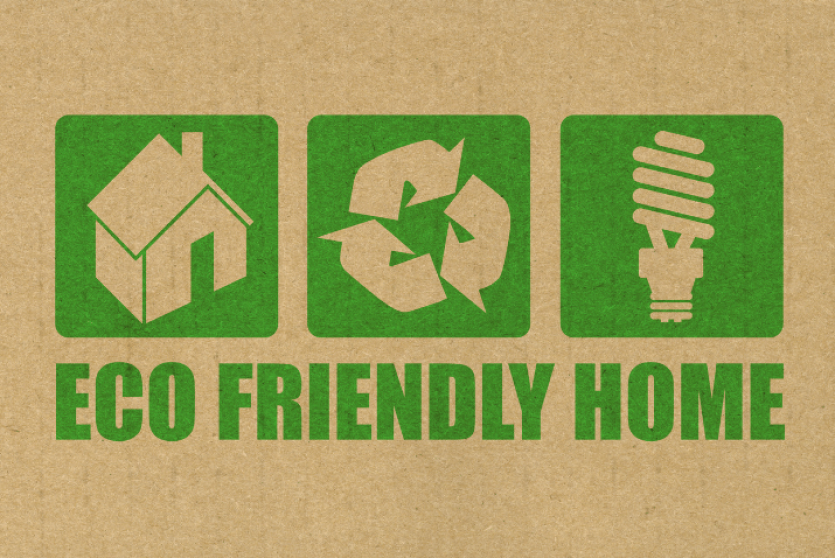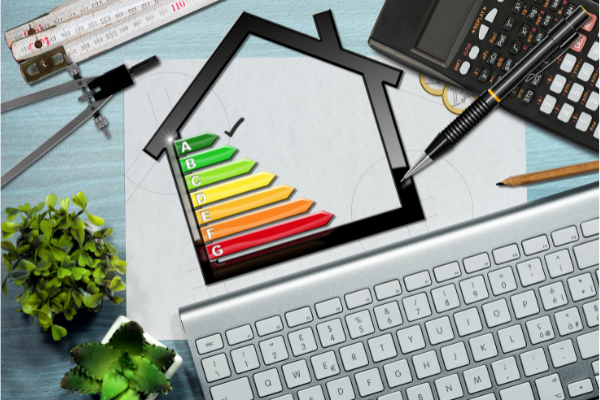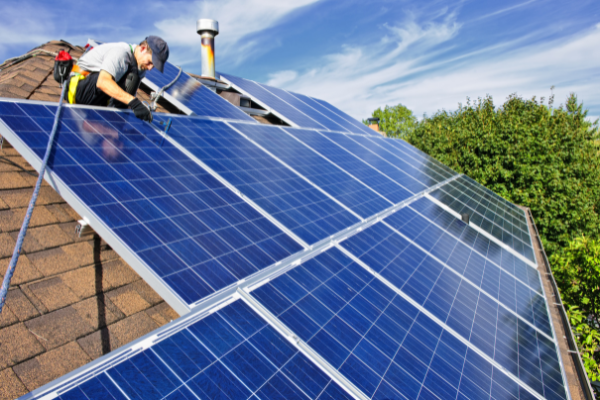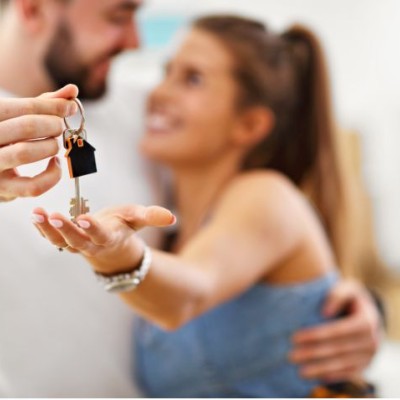6 ways to make your property more eco-friendly

The Government has signed up the UK to reduce carbon emissions by more than any other similarly developed country by 2050. This target will undoubtedly impact the property market, given that “around 22% of the UK’s carbon emissions come from our homes”, according to the Energy Saving Trust.
It’s likely you’ll want to spend as little as possible on your energy bills and have a desire to reduce your personal impact on the planet, whether you’re a homeowner or a landlord.

It’s expected that over the coming years, all rented homes will have to achieve a minimum EPC rating of ‘C’ in order to be legally let. And those building new homes won’t be able to fit gas boilers from 2025, meaning that as an existing property owner, if your traditional boiler (gas or oil) breaks, you’re likely to struggle to secure a replacement from the mid-2030s.
So whether you plan to build a new home, own a home already or let a property out, it’s important to have a plan to improve your property’s energy efficiency over the next 5 to 15 years.
It’s worth bearing in mind that, for an average dwelling in England and Wales built before 2018, improving the property’s energy efficiency to its full potential could save the bill payer £178 per year (which could also increase interest from tenants if you’re a landlord).

Here are 6 cost-effective ways to save energy in your home:
1. Improving insulation
Whether it’s a loft, walls or floors, the better insulated your home, the more likely you are to conserve energy. However, each property may be built differently and can have different EPC ratings, so it’s important to seek expert advice from a qualified surveyor or energy expert on what kind of insulation would be best.
2. Draught proofing
This is an incredibly easy way to save energy. You just need to identify and block any gaps that might let cold air in or warm air out, particularly around windows and doors.
3. A new energy efficient heating system
The first thing to do is check how old your existing heating system is. Boilers typically last 10-15 years, some more, some less. As mentioned above, by the mid-2030s, traditional boilers will probably be difficult to get hold of given that they can’t be installed in new homes from 2025. If it’s likely that your boiler will need replacing within the next 10 years, you might want to start researching options for an efficient replacement heating system that would be suitable for your particular type of property.
4. Double-glazed windows
If any properties you own still have single glazing, it’s worth upgrading to double glazing. As well as helping minimise energy loss, it can also reduce condensation and make the home quieter – especially valuable if it’s on a busy road. For rented homes, all these benefits can help attract tenants and reduce voids, plus you may be able to charge a little more rent. And for every property, the addition of double glazing could help to add capital value.
5. Solar water heating
Even though we don’t always get the amount of sunshine we’d like in the UK, we do get enough to generate free hot water via a solar water heating system. Typically, the heat is provided by solar panels fitted to roofs and the system can also be linked to existing boilers or immersion heaters, so that if there are any problems, the conventional heating system can step in.
If that sounds like a good option for you, there are three key things to consider:
- Can your roof structure cope with the additional weight of the panels?
- Will your current heating system link in?
- Do you need planning permission for the size of installation?
6. Get a smart meter installed
A smart meter is the next generation of a gas and electricity meter. Instead of estimated billing, a smart meter automatically sends your readings to your energy supplier at least once a month. This means you (or your tenants) will receive accurate, not estimated bills. Due to the digital screen on the meter, it is easy to see how much energy is being used in pounds and pence, and you can adjust your usage if you feel it’s required. If you see a sudden spike in energy usage, it can also alert you to an appliance that may be faulty. Smart Energy GB estimate a 24% decrease in emissions from homes and businesses by 2030 through the use of smart meters.
There is no doubt that developers, homeowners and landlords are all going to have to improve energy efficiency over the next few decades. It’s worth starting to plan now how you’re going to make sure your property meet these future requirements and budgeting for the necessary expenditure!
Looking for advice?
If you're looking to let or sell your property, we can help. Get in touch with your local branch or book in for a property valuation.

Contact Us
Got a question, general enquiry or something else?
You may also like
Since we started in 1987 we have grown to one of the UK’s largest property groups, we can save you time and money by offering a range of services and expertise under one roof.



